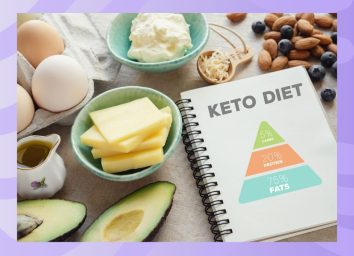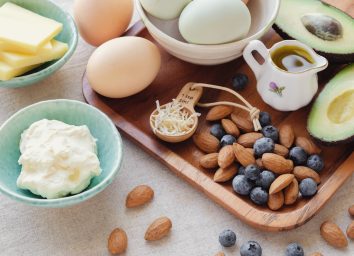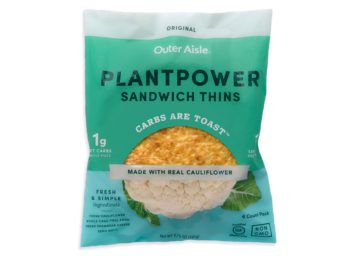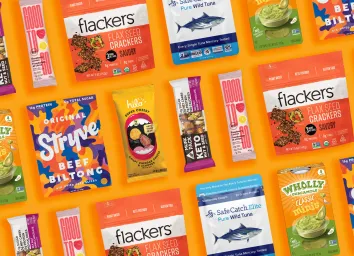8 Major Mistakes You're Making on the Keto Diet
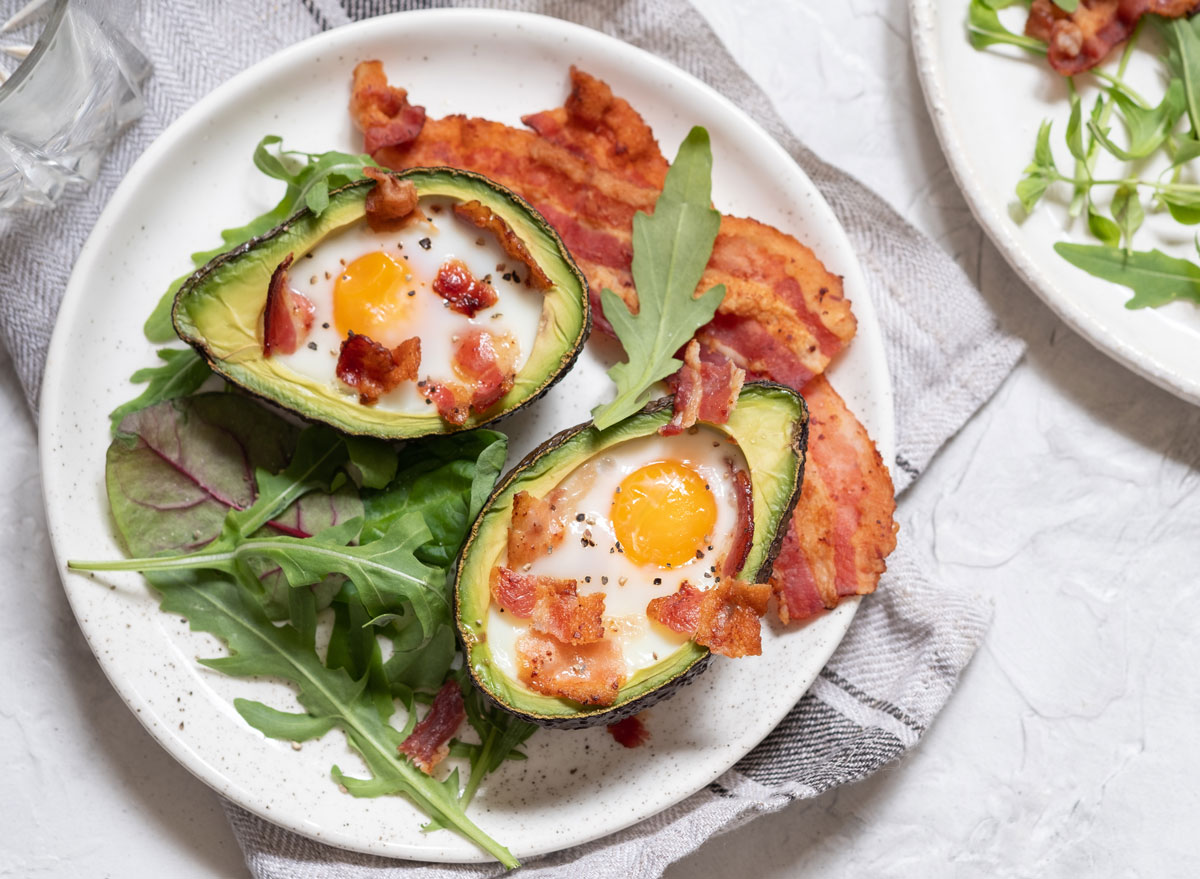
Anyone who's tried the ketogenic diet can attest that starting isn't nearly as challenging as properly adhering to it. After all, your meals must strike a balance between low-carb, moderate-protein, and high-fat in order to maintain the delicate, fat-incinerating state known as ketosis. If you're not getting it right, you may be wondering: "why am I not losing weight on keto?"
Much like many good things in life, investing effort will reap worthwhile results and help drive success. And in the keto diet sphere, it's all too easy to fall into common mistakes when you can enjoy fat-dense foods like cheese, almond butter, and avocados that may end up preventing you from losing weight—one of the main goals people have when they start the keto diet.
To help clear up some of the confusion surrounding this widely popular diet trend, we spoke to Dr. Anthony Gustin, DC, MS, and Founder & CEO of Perfect Keto.
Be aware of these eight common mistakes below if you're not losing weight on keto or not seeing the brain-boosting, energizing effects of ketosis.
You're eating (or drinking) too many inflammatory foods.

Dr. Gustin tells us that the top seven foods that cause inflammation include: sugar, refined grains, vegetable oils, conventionally raised meats, processed meats, artificial food dyes and colors, and excessive alcohol.
Maintaining ketosis and overall health requires you to center your diet around whole foods rather than processed foods, a habit that will also help kick junk food cravings to the curb as well as help you lose weight.
"Choose healthy, keto-friendly snacks over chips and crackers and make delicious macadamia nut fat bombs to satisfy your sweet tooth," Gustin suggests. "Choose unsweetened coffee, tea, and water over soda, sports drinks, and cocktails. Add more leafy greens, fatty fish, and other healthy foods to your diet to help fight inflammation."
STAY INFORMED: Sign up for our newsletter to get the latest food news delivered straight to your inbox.
You don't bother with meal prep.
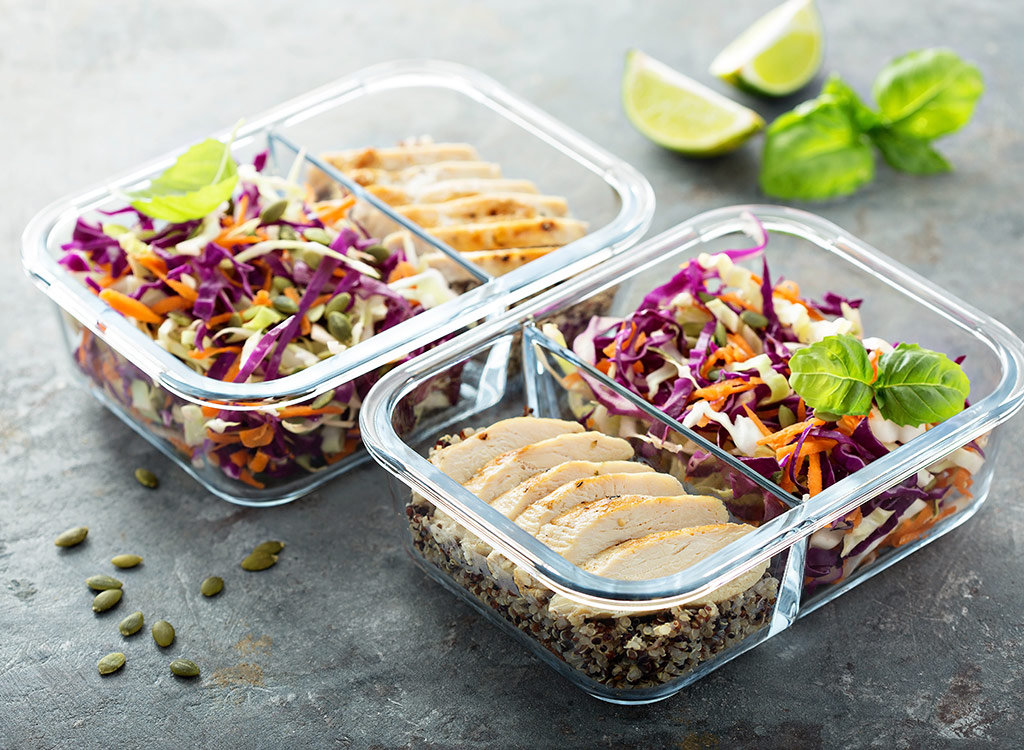
As Benjamin Franklin once said, "Failing to plan is planning to fail," a cliche that couldn't be more relevant to the keto diet. One of the essential lessons I learned after going keto was that meal prep is key to staying on track.
Without proper meal prep, you may end up having to opt for a meal that isn't keto compliant, which can knock your body out of ketosis, and these cheat meals could be one of the reasons you're not losing weight on keto. Since most of us don't have the time to scavenge our office's half-mile radius in efforts to find a keto-friendly meal, prepping food in advance will save you time, money, and help you avoid a slip-up.
You aren't getting enough vitamins & minerals.
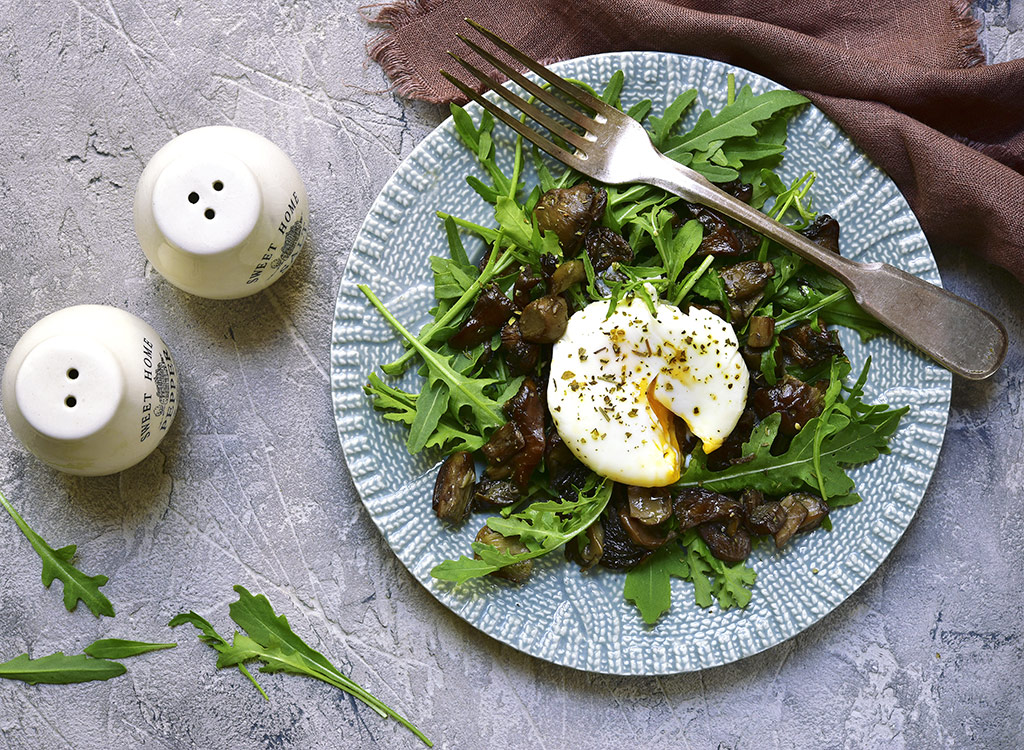
"By taking note of which micronutrients are commonly lacking in the ketogenic diet, you can adjust your keto diet plan accordingly to fill in the gaps," Gustin says. During the first two weeks of going keto, your body flushes out essential electrolyte minerals—sodium, calcium, potassium, and magnesium—due to the diuretic effect that follows eliminating carbs.
Since your body sheds water along with essential electrolytes, you'll need to fill up on micronutrients. "Avoid consuming your calories from foods that contain little to no micronutrient value," Gustin says. "If you incorporate green leafy vegetables along with grass-fed meats and avoid processed foods, you should have all of the essential nutrients your body will need to thrive." Without these electrolytes in your system, you may become dehydrated, which can lead to regaining that lost water weight.
You skimp on proper sleeping habits.

Studies show that failing to get seven to nine hours of sleep each night can cause your stress hormone cortisol to spike, increasing cravings and hunger the next day—which can potentially kick you out of ketosis. If you're not meeting your nightly shut-eye requirements, Gustin recommends scaling back by a half hour every night until you hit your sleep goal.
"Sleeping in a relatively chilly room (around 65 degrees) along with keeping a dark room will help you get into a deep, restorative sleep more frequently. If you have trouble sleeping, supplementing with a natural sleep aid like melatonin can also work wonders."
You're keeping artificial sweeteners in your diet.
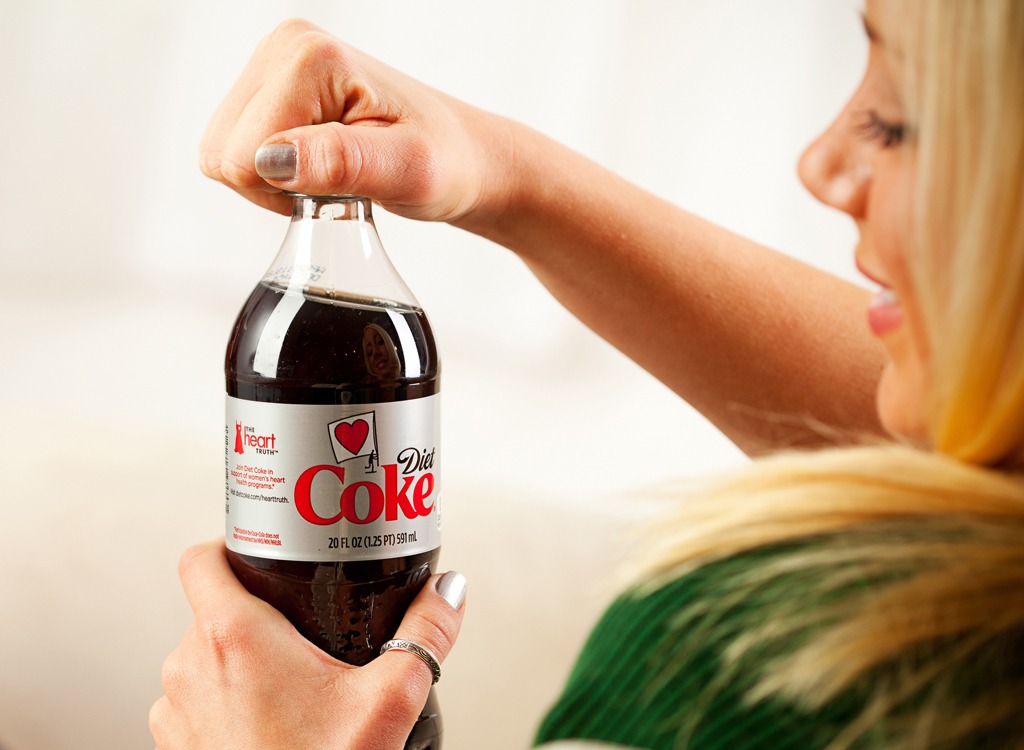
"Just because diet soda has zero calories doesn't mean it fits into your ketogenic diet plan," Gustin reminds us. "Diet sodas use several sugar substitutes that can signal to your body that a large amount of sugar is entering the body. This can lead to increased blood sugar levels. Plus, when you load up on zero-calorie sweeteners, you're only going to increase your cravings for sweet foods and drinks in the future," which can lead to weight gain.
"Instead of diet soda, sparkling water can be a great alternative without the unnecessary sugar substitutes," Gustin recommends.
You're ignoring hidden sources of carbs.
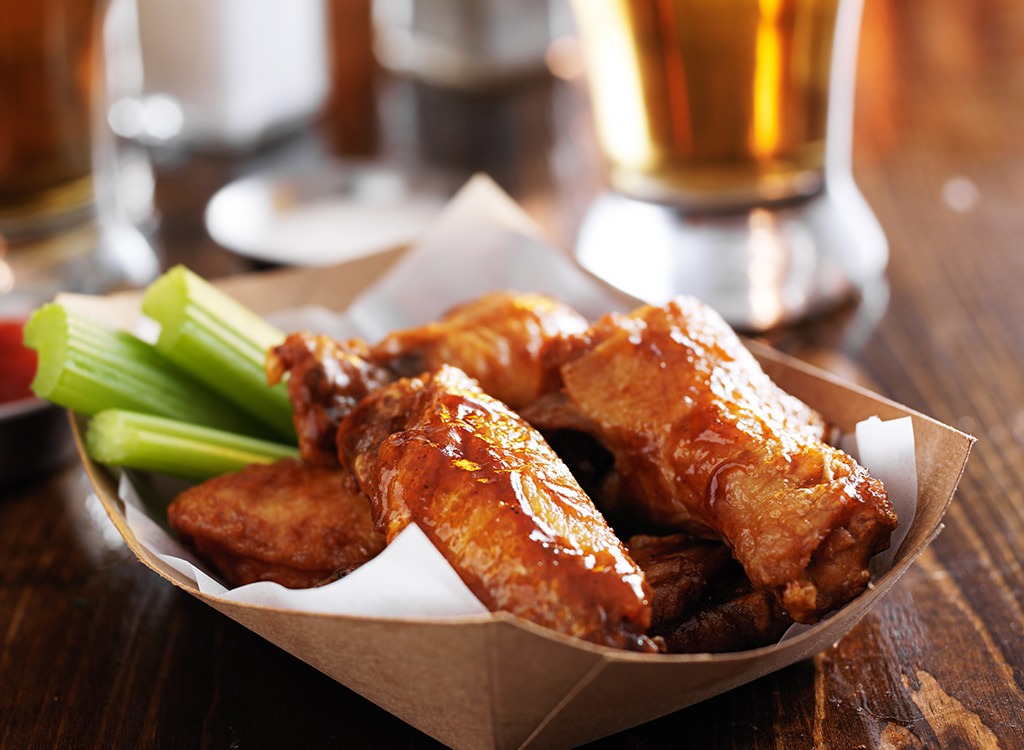
Probably the most challenging aspect of going keto is ensuring your carbohydrate intake remains low. That's why Gustin reminds us to be careful of hidden carbohydrates in certain foods that may seem keto-friendly but are actually packed with sugar.
Examples of keto foods with hidden carbs include: chicken wings loaded with barbecue or buffalo sauce, breaded meats, milk, most fruits (blueberries are fine in small amounts), low-fat foods such as yogurt.
"The general rule of thumb is to consume 20 to 30 grams of net carbs daily. If you exercise more frequently, you can get away with the upper threshold and still stay in ketosis. You can also calculate your net carbs on MyFitnessPal," Gustin suggests.
You're not eating enough vegetables.
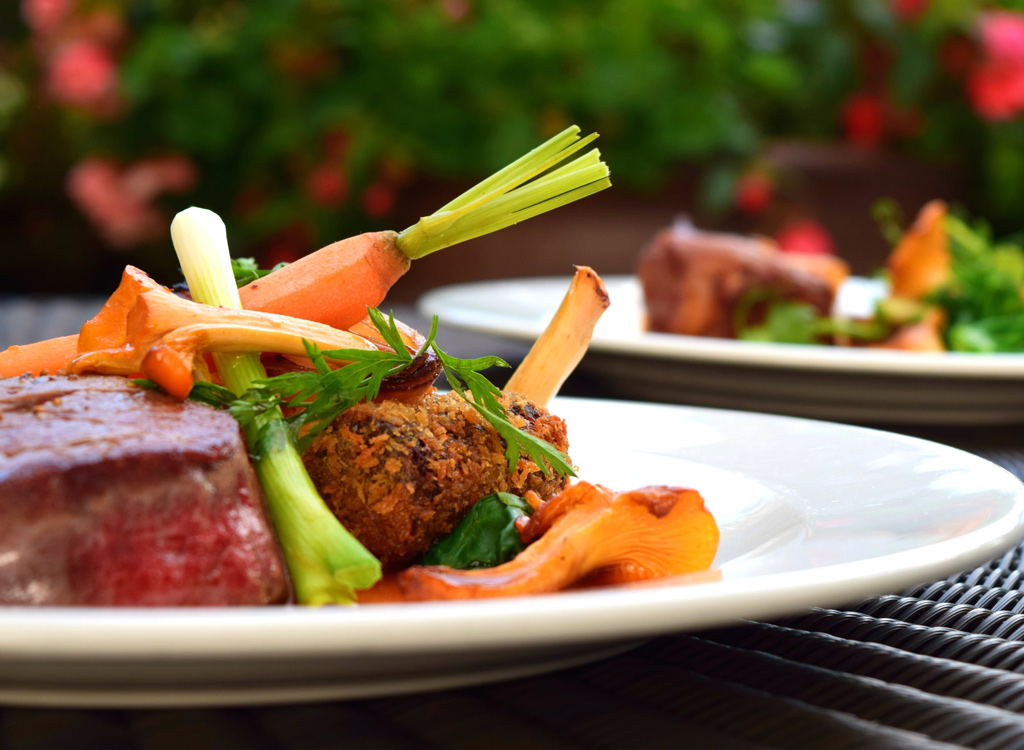
Avoiding carbs while on keto has one major downside: You're probably not getting enough gut-friendly fiber.
To keep things moving along, Gustin recommends eating keto-friendly, nutrient-dense, non-starchy, high-fiber vegetables such as: kale, broccoli, cauliflower, spinach, cabbage, and Brussels sprouts.
"If you're the type of person who likes to feel physically full after a meal, it's important to include plenty of these low-calorie vegetables in your diet so you're not eating an entire bag of calorie-dense macadamia nuts in one sitting." Making that mistake is one of the more common reasons you're not losing weight on keto.
You don't eat enough protein.
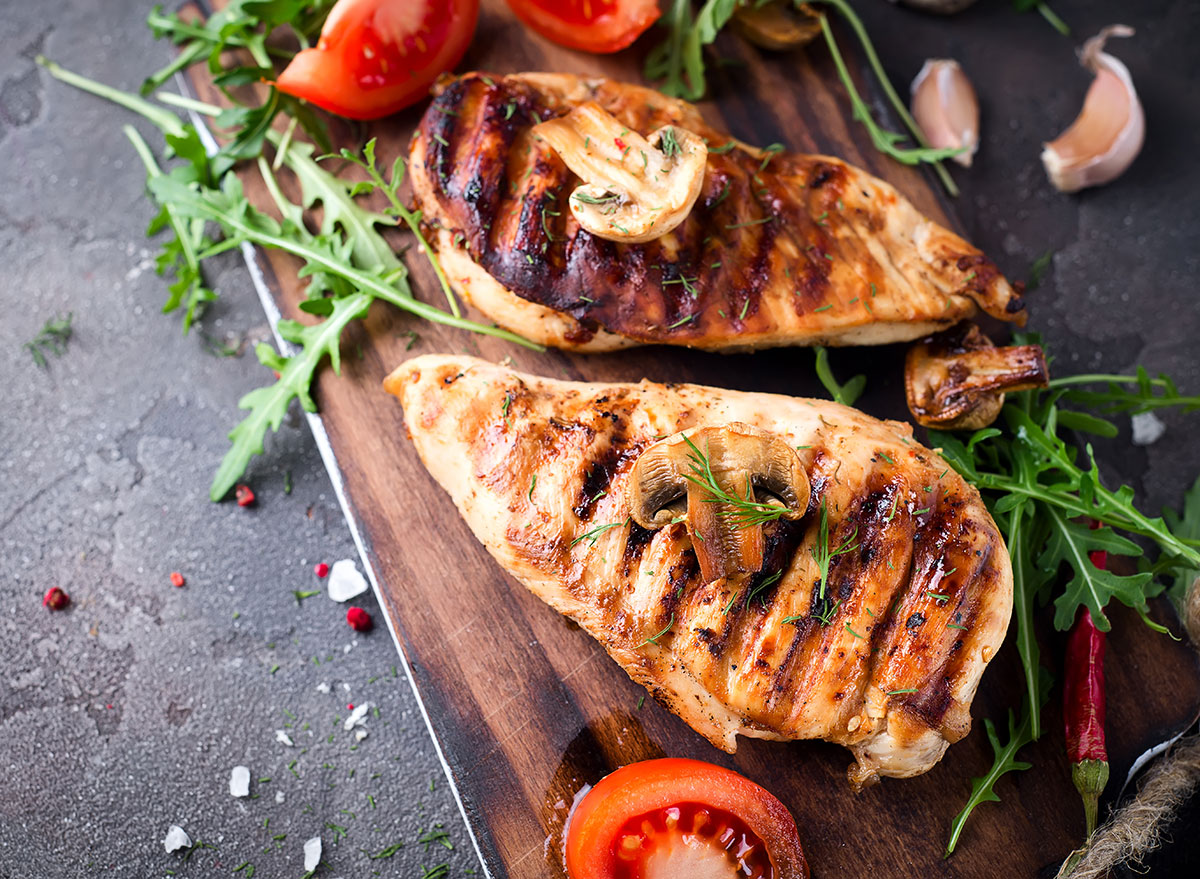
Contrary to popular belief, eating too much protein won't actually kick you out of ketosis. Gustin reassures that loading up on protein while on keto can't trigger gluconeogenesis (GNG), a metabolic process that results in a production of glucose from non-carb foods, and put you right back on glucose-burning mode.
"Bottom line: Don't obsess over protein macros on keto—eating a lot of protein is not enough to increase the highly stable rate of gluconeogenesis, and your body prefers to use lactate before amino acids anyway," Gustin says. "Next time, don't hesitate to go heavy on the meat if you feel like it. You'll most likely stay in ketosis without a problem." To stick to your keto diet when you're out and about, you should really load up on these 22 Best Keto Snacks to Buy For Fat Loss.
